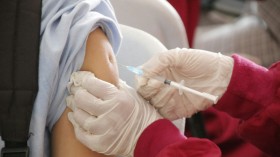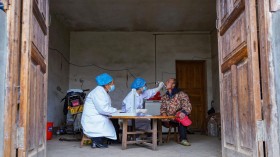Norovirus, a very contagious stomach bug that often happens to outbreaks on cruise ship, is not only a very dangerous disease that can be acquire by anyone but also a very expensive disease that can greatly impact the economy, new study shows.
"It doesn't matter how old you are or if you're in a wealthy country or a poorer one or if you've had it before - you can get it again," warned study leader Sarah M. Bartsch, MPH, a research associate at the Bloomberg School, said in a statment.
According to the study published in the journal PLOS ONE, norovirus expenditures are estimated to be $4.2 billion in health care costs and $60.3 billion in societal costs each year.
For the study, researchers used a computer-generated model to estimate both the medical cost and economic cost of norovirus in 233 countries, regions and territories in the world for which the United Nations has population data.
Productivity loss, which includes missed work due to illness, caring for a sick child, underperforming at work while sick and premature mortality, has the largest percentage of the total cost, about 94 percent of global economic burden.
"The costs associated with norovirus are high -- higher than for many diseases, including rotavirus, that have gotten a lot more attention. Our study presents an economic argument for greater consideration of norovirus. It has been flying under the radar for too long," said study's senior author, Bruce Y. Lee, MD, MBA, an associate professor in the Department of International Health at the Bloomberg School.
According to the report of Centers for Disease Control and Prevention, norovirus causes 19-21 million illnesses and contributes to 56,000-71,000 hospitalizations and 570-800 deaths in the United States.
Norovirus can be acquired through eating or drinking contaminated food and water, touching contaminated surface or object then putting your hands in your mouth and having contact with someone contaminated.
Contaminated patients may present symptoms such as diarrhea, nausea, throwing up and stomach pain. Other symptoms include fever, headaches and body pain.
Proper hygiene such as washing hands after going in the toilet or changing diapers and before eating can greatly prevent the spread of norovirus. Experts also advised careful food handling including washing and cooking properly of foods.
© 2024 NatureWorldNews.com All rights reserved. Do not reproduce without permission.




